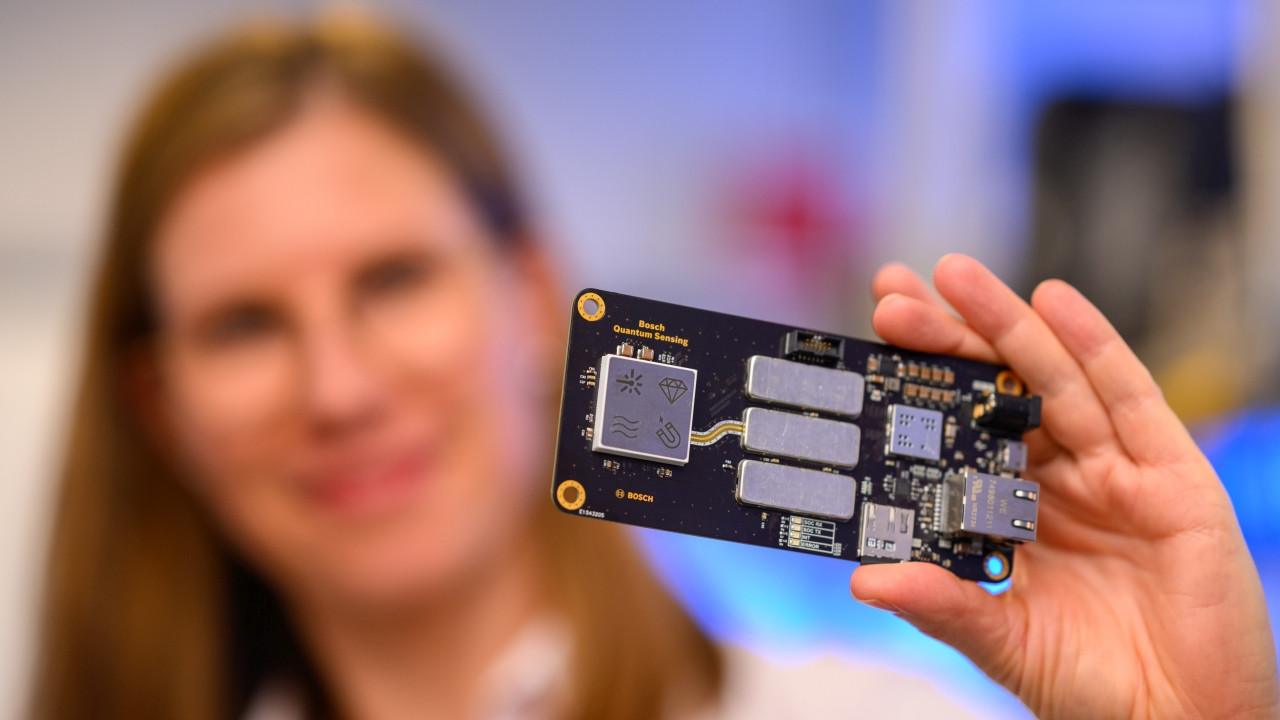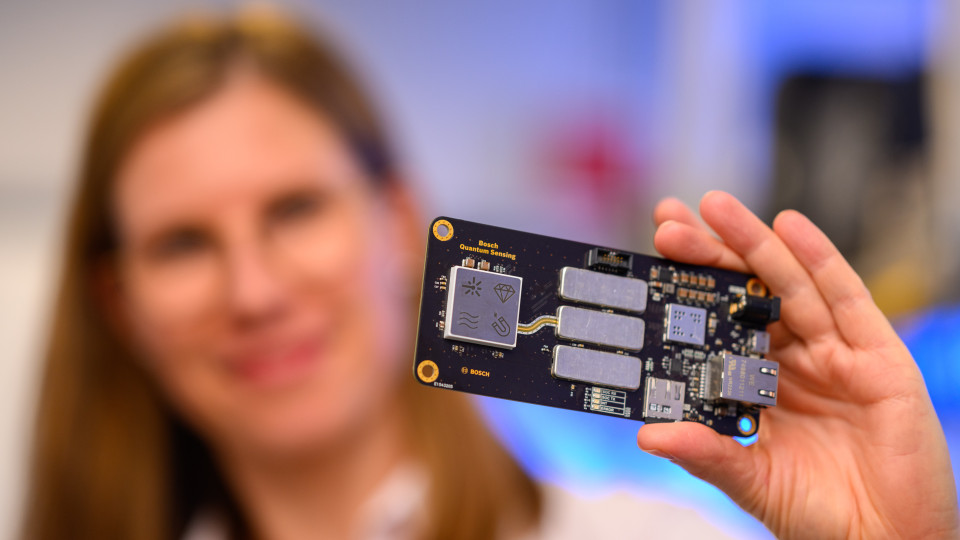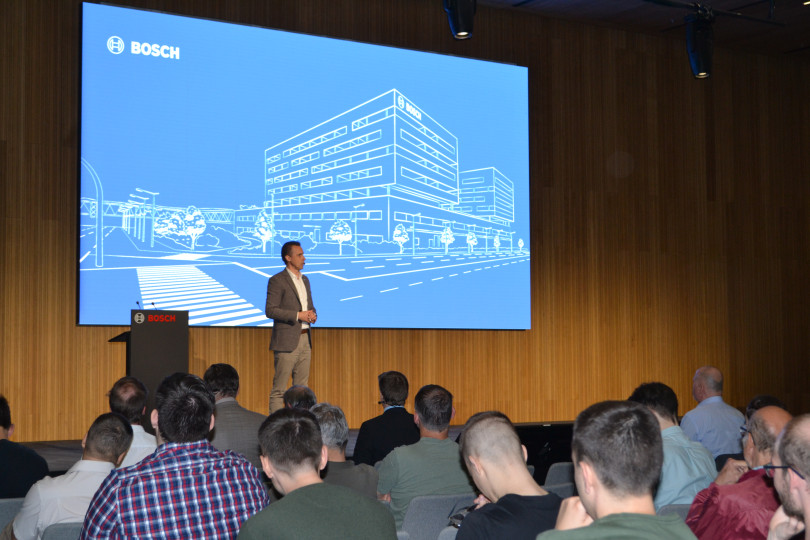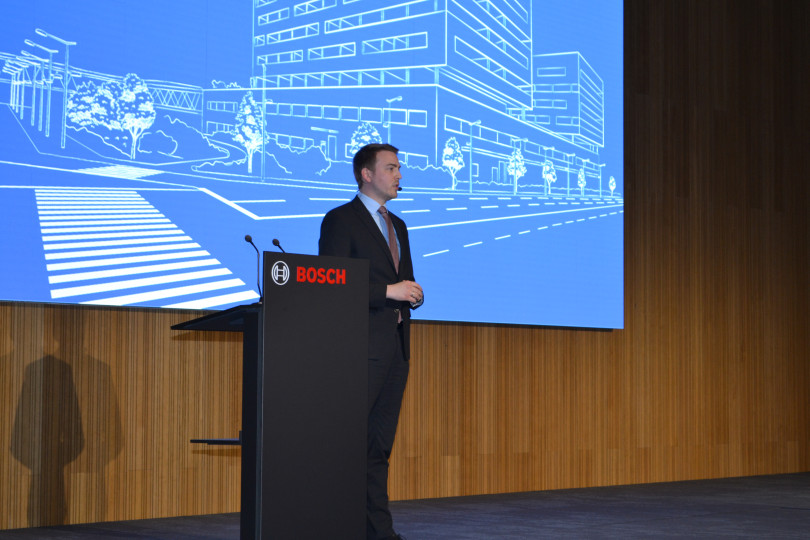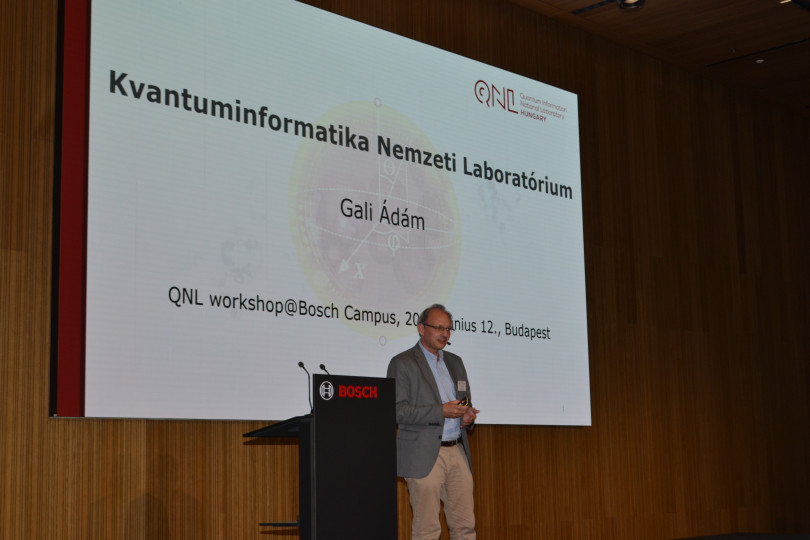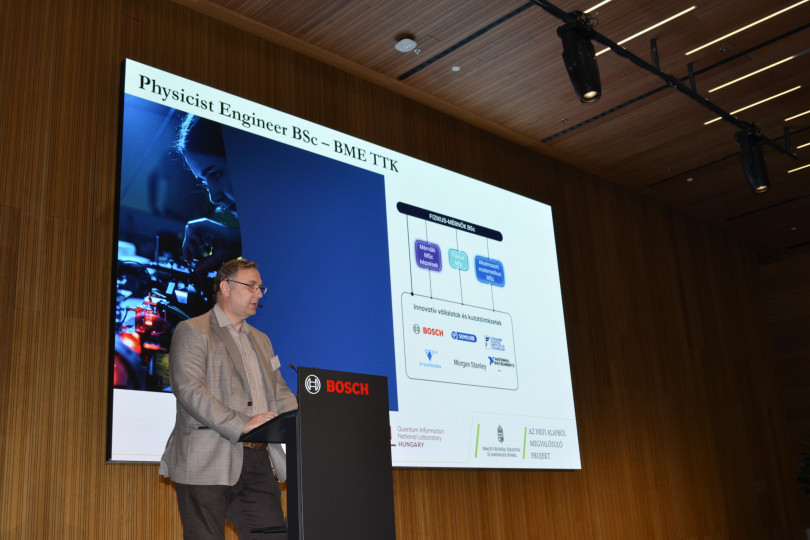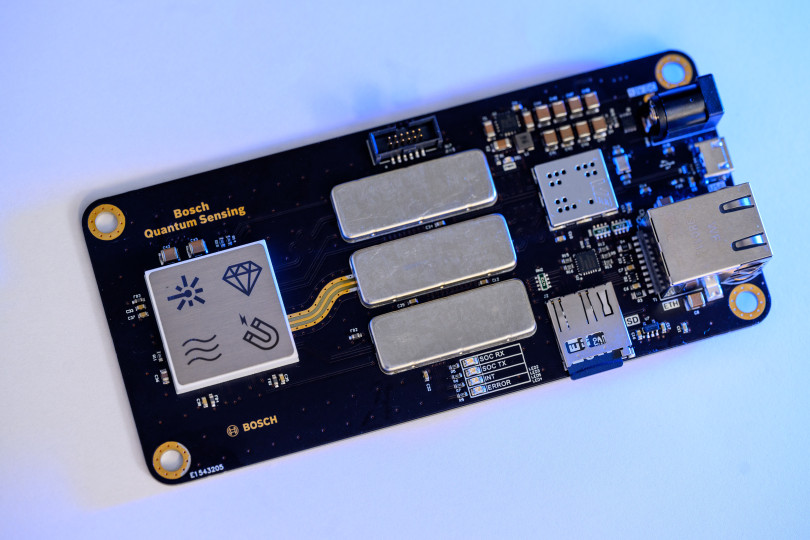Although the advancement of informatics has already fundamentally transformed our lives, quantum technology could usher in an entirely new era. It has the potential to bring a significant leap forward: in communication, computing and information technologies, as well as in metrology and medical diagnostics.
Quantum Information National Laboratory Workshop 2025: a unique scientific gathering supported by Bosch
Currently, around twenty internationally recognized research groups — comprising of physicists, engineers, mathematicians, and computer scientists — are working on quantum informatics topics at Hungarian research institutes and universities. The mission of the Quantum Information National Laboratory is to pool professional resources and provide a solid foundation for well-planned and coordinated developments that further strengthen Hungary’s role and significance in both the theoretical and applied fields of quantum informatics.
The aim of the Quantum Information National Laboratory Workshop 2025 scientific gathering was to provide an overview of the latest trends, domestic developments, and achievements in quantum informatics. The professional conference was hosted at the Bosch Budapest Innovation Campus.
Bosch among the pioneers of quantum technology
“It is now clear that quantum technology holds enormous potential, and Bosch has become a major player in this field over the past decade. We were delighted to host the flagship event of the Quantum Information National Laboratory Workshop 2025, as our common goal is to ensure that the theoretical results of quantum technology become part of industrial production and everyday life as soon as possible,” said Dr. István Szászi, head of the Bosch Group in Hungary and the Adriatic region, at the conference.
As one of the world’s leading innovative companies in state-of-the-art sensors, Bosch places a special emphasis on developing quantum sensors that are much more sensitive and accurate than current technologies. The quantum sensors developed by Bosch Quantum Sensing, for example leverage the unique properties of synthetic diamonds and have the potential to revolutionize fields like medical technology, mobility, and consumer goods. Among other applications Bosch’s quantum sensors could be used in the future for electrocardiographic measurements (ECG) with much greater precision and speed than today’s methods, for determining the exact charge level of batteries, for aircraft navigation, and even for detecting mineral deposits.
According to Bosch estimates, the global market for medical and mobility applications of quantum sensors could grow to several billion euros annually by the middle of the next decade. The tech company aims to miniaturize quantum sensors to the point where they can be integrated into chips, enabling their widespread and cost-effective use. In addition to quantum sensors, Bosch also sees significant potential in quantum computers, which the company believes could bring major innovations across various technological fields, including materials science.
The HUN-REN Wigner Research Centre for Physics is working on the classification and industrial application of quantum computers and quantum sensors
The presentations at the Quantum Information National Laboratory Workshop 2025 addressed the most pressing issues in quantum technology. The HUN-REN Wigner Research Centre for Physics aims to master the latest applications and establish a quantum informatics-based laboratory infrastructure — thus paving the way for the development of new hardware, for example in the field of quantum sensors. In addition, the HUN-REN Wigner Research Centre for Physics is currently developing new methods for the classification of quantum computers, which could be an important step towards their practical use. The institution seeks to develop quantum algorithms and hybrid solutions that will enable quantum computers to be used in industrial applications.
BME: Hungary may also join the pan-European quantum internet
At a lecture by the Budapest University of Technology and Economics (BME), speakers discussed Hungary’s efforts to build a domestic quantum communication network that can be integrated into the pan-European quantum internet — which is currently being planned by the European Union and expected to be realized within the next 10 years. This could put Hungary at the forefront of international quantum communications. Quantum communication networks will not only enhance the security of current encryption methods but may also enable the interconnection of quantum computers over long distances in the future. Also, at BME, researchers are developing new quantum bit solutions that form the basis for quantum computing, and quantum technology based atomic-scale memory devices. These advancements will provide the hardware foundation for the computational needs of artificial intelligence.
Optical laboratory for quantum information at ELTE
At the event, Eötvös Loránd University (ELTE) reported on the establishment of a quantum optics laboratory. This lab will provide the university with the capability to develop experimental components for photon-based quantum computers — meaning systems that use photons to store and process information — at a technological standard matching the highest international levels. During the workshop, ELTE’s experts emphasized that the emergence of quantum computers also calls for new solutions in software development. The institution's researchers and experts are currently working on software tools and interfaces, as well as quantum-resistant protocols that support the programming of quantum-based systems and the management of new cybersecurity challenges.
Zita Hella Varga
Phone: +36 70 667-6374
Bosch has been present in Hungary since 1898 with its products. After its re-establishment as a regional trading company in 1991, Bosch has grown into one of Hungary’s largest foreign industrial employers with currently nine subsidiaries. In fiscal 2024 it had total net sales of 2058 billion forints and consolidated sales to third parties on the Hungarian market of 313 billion forints. The Bosch Group in Hungary employs more than 17,400 associates (as of December 31, 2024). In addition to its manufacturing, commercial and development business, Bosch has a network of sales and service operations that covers the entire country.
The Bosch Group is a leading global supplier of technology and services. It employs roughly 418,000 associates worldwide (as of December 31, 2024). The company generated sales of 90.3 billion euros in 2024. Its operations are divided into four business sectors: Mobility, Industrial Technology, Consumer Goods, and Energy and Building Technology. With its business activities, the company aims to use technology to help shape universal trends such as automation, electrification, digitalization, connectivity, and an orientation to sustainability. In this context, Bosch’s broad diversification across regions and industries strengthens its innovativeness and robustness. Bosch uses its proven expertise in sensor technology, software, and services to offer customers cross-domain solutions from a single source. It also applies its expertise in connectivity and artificial intelligence in order to develop and manufacture user-friendly, sustainable products. With technology that is “Invented for life,” Bosch wants to help improve quality of life and conserve natural resources. The Bosch Group comprises Robert Bosch GmbH and its roughly 490 subsidiary and regional companies in over 60 countries. Including sales and service partners, Bosch’s global manufacturing, engineering, and sales network covers nearly every country in the world. Bosch’s innovative strength is key to the company’s further development. At 136 locations across the globe, Bosch employs some 87,000 associates in research and development
Additional information is available online at www.bosch.hu, iot.boschblog.hu, www.bosch.com, www.iot.bosch.com, www.bosch-press.com, www.twitter.com/BoschPresse

